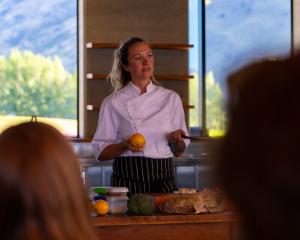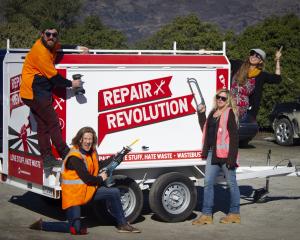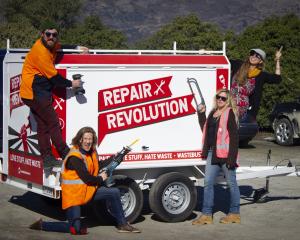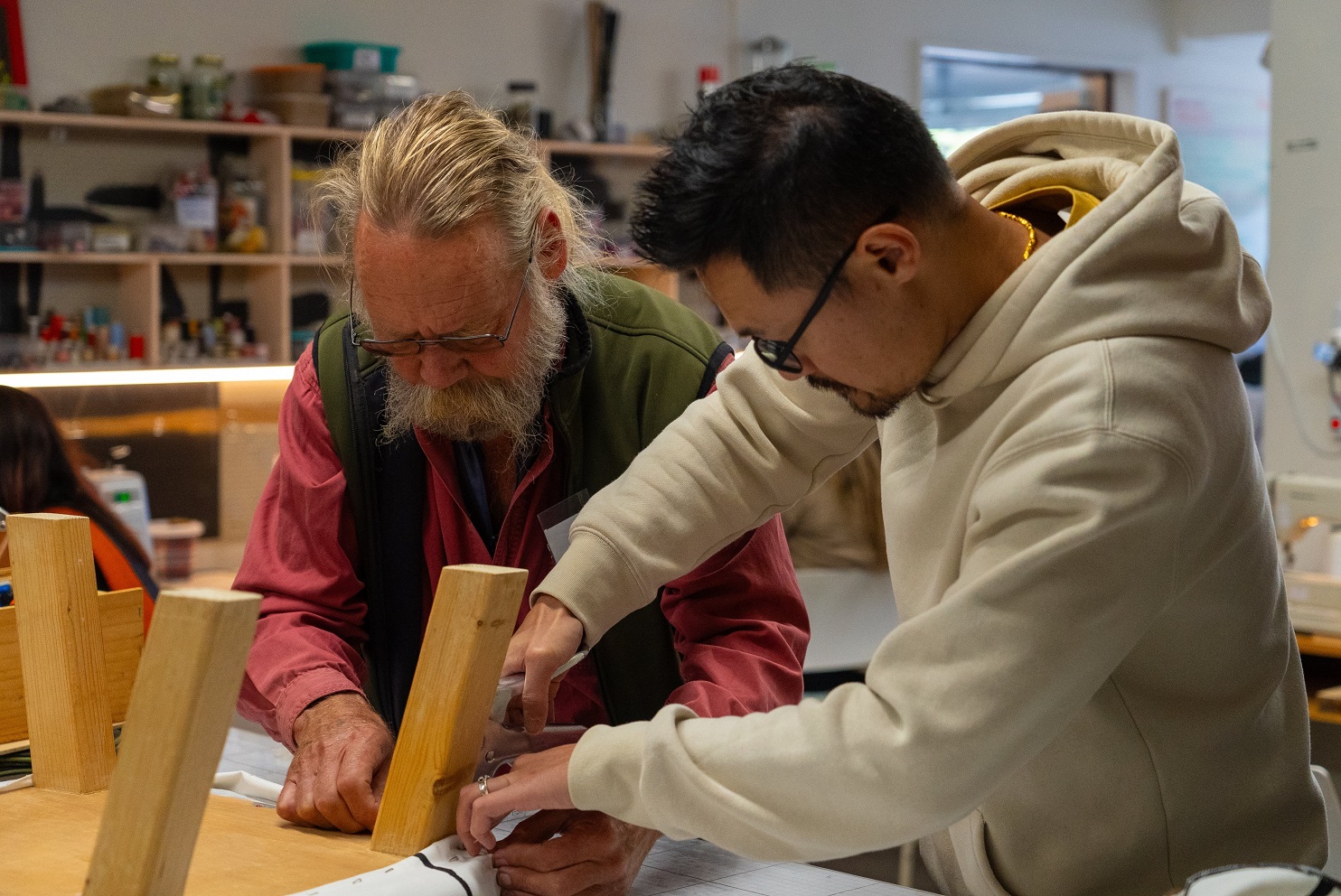
Last Sunday, I joined a group of fabulous volunteer fixers at Wastebusters’ Repair Revolution event in Wānaka.
This intergenerational team of skilled sewers, furniture upholsterers, woodworkers, sparkies, bike techs, problem solvers and No.8 wire thinkers come together every few months to help keep everyday treasurers in circulation.
A steady stream of items in need of tender loving repair were brought in on the day. Among them a sleeping bag needing a zip fix for an overnight tramp, several garments with holes for mending and a few bikes for tuning. A toy digger was welded back together and a favourite teddy fixed. Thanks to our magic fixers, the success rate from our events is pretty high — 80% of the items brought in were repaired, 10% needed a bit more love than the allotted hours could cope with, and the remaining 10% were unfixable.
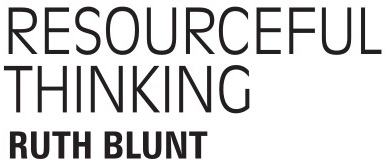
As I darned a hole in Cashmere jersey on Sunday, one person told me about the sock they fixed, another talked about an intricate repair to a lace top. We value the things we repair, and we love to talk about it.
The energy around repair has grown since we started our events four years ago. Across the globe, we’re seeing a surge in interest — and action — in extending the lifespan of products and reducing waste.
In April, the European Parliament approved "right to repair" rules that aim to strengthen the EU repair market and reduce repair costs for consumers by clarifying the obligations for manufacturers to repair goods and encouraging consumers to extend a product’s lifecycle through repair.
Here in Aotearoa, our own repair movement is gaining momentum. More than 21,000 people signed Consumer NZ’s petition for the introduction of mandatory repairability labels on products, which was delivered to Parliament last month. And the Consumer Guarantees (Right to Repair) Amendment Bill is currently awaiting its first reading. This Right to Repair Bill will strengthen consumer rights and promote a more sustainable economy by providing consumers with the right to repair their products and access to the information and spare parts they need.
Wastebusters 2023 Resourceful Communities survey found that one of the biggest barriers to repair is the lack of knowledge and access to repair services. We aim to overcome this barrier with a localised directory highlighting Queenstown Lakes businesses and individuals actively working to extend the life of stuff we love. We curate repair resources so they are easier to find and highlight them throughout the year — our repair blogs are some of the most read blogs on our website.
Overseas, there are nationwide repair directories. One has just been launched in the Scottish Highlands. Ireland has more than 800 fixers on their directory and there is an online index of European companies that provide "maintenance, repair and overhaul" of services and products.
Without a national directory here, businesses that offer repair on their products, beyond their obligations under consumer laws, do so quietly. Spare parts, in-house repair teams, tutorials and how-to videos sit on blogs and web pages, with the onus on the consumer to go looking. That is despite repair being good for business: those who embrace repair and refurbishment report higher customer loyalty and financial gains.
Wastebusters’ repair event, supported by Queenstown Lakes District zero waste programme, was one of many which brought the inaugural country-wide Repair Festival to a close on Sunday. The week-long celebration of repair through events, workshops and webinars highlighted the breadth of (mostly volunteer) work going on.
Repair is so much more than a sock darned, a treasure restored — it’s community connection, resilience building, resourcefulness celebrated. It is a small act of rebellion against a disposable culture, and often a source of pride — "I fixed that!".
I love seeing those moments unfold at our repair events. The couple who brought in a stool in need of attention learned how to stretch the new upholstery over the seat and fix it into place alongside one of our repair gurus. The seven year old who gave his well loved teddy a new lease of life by learning how to sew the leg of "Wally the Walrus" back on.
So the next time you are faced with a broken treasure, look for a repair event in your area, or go back to the company you bought it from — they might have a repair service you didn’t know about.
Let’s embrace the power of repair and the feel-good factor that comes with keeping things we love in circulation.
Ruth Blunt is Wastebusters communications manager. Every week in this column one of a panel of writers addresses issues of sustainability.
Spring Repair Revolution
• September 28: Queenstown Salvation Army
• November 10: Wānaka Community Workshop
• November 23: Queenstown Salvation Army


